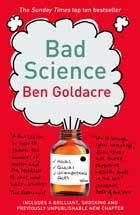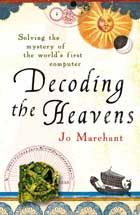Too much of the Swedish legal education system is all about learning the law as it is. Attempting to develop a social consciousness about the way in which the law should be is almost frowned upon. This is important if the goal of law school is to produce skilled legal workers (in Swedish I would have used the word hantverkare). This however degrades the ability and importance of the law professional to the level of plumber, electrician or doctor. This last sentence is not meant in any way to degrade the knowledge necessary in these professions but refers to the way in which they approach and resolve problems.
The doctor, plumber, electrician and lawyer see a problem and apply the tools of the trade to fix it. And this is an important task in society. When your boiler is leaking it is important that you can call a plumber who arrives and resolves the issue without re-interpreting the way in which your house is built. But, (you knew that there would be at least one but…) between leaks the plumbers education should have encouraged him or her to think about how and why pipes, houses and people interact.
The ability to fix direct problems should not mean that these professions cannot evolve and challenge the established set of knowledge. The plumber, doctor and electrician all have the ability to change the way in which their professions understand their own work situation. The Swedish legal education system does not promote this kind of critical thinking.
For critical legal thought we must leave the cold Norse climate and look to the Anglo-American legal system. Sure, there are legal systems which promote critical thinking but not as much as the Anglo-American system. And sure, not all Anglo-American lawyers think critically – which is good since sometimes you need a lawyer to be, just a lawyer.
There are a multitude of examples, courses, books, scholars and whole schools of thought to promote critical legal thought or social legal theory. But one of the more enjoyable must be cross between law and literature which provides a mix of deep thought, social criticism and comic relief all in the academic format (not an easy task).
Take for example this article I just came across by Kimberlianne Podlas of the University of North Carolina: Homerus Lex: Investigating American Legal Culture Through the Lens of The Simpsons. (Seton Hall Journal of Sports & Entertainment Law 93, 2007). From the abstract:
The Simpsons is not merely the most successful cartoon in history (and seen in more than 70 countries), but a pop culture chronicle that uses satire to explore a variety of social issues. No subject is immune from its scrutiny, and the law is no different. Though not traditional law programming, The Simpsons includes some of television’s most profound depictions of the legal system, regularly referencing statutes, private settlements, and trials. Accordingly, it is important to understand what its legally-tinged themes communicate about the value of the legal system.
Embracing a socio-anthropological perspective, this paper studies the function, role, and ideology of law in Springfield, the hometown of the Simpson family. Rather than critiquing a few memorable episodes, it employs ethnographic analysis. Hence, it considers every episode of the first eight seasons, systematically recording each “instance” of law, organizing these into themes, and analyzing them with an eye toward understanding the values and operation of law.
Though politicians and media often present a pessimistic view of the legal system, where litigation is out of control and law impedes common sense justice, The Simpsons depicts a system that is just and beneficial to society. The Simpsons may satirize situations prompting legal action, it upholds the value of law in maintaining a civil society and being a tool that citizens use to right wrongs and make them whole.
This is not legal plumbing, this teaching in such a way as to encourge legal criticism and independent thought. No matter what the conclusions of the article, its very existance shows that law schools are capable of producing more than competent hantverkare who can be called to fix leaks.






 Napoleon’s marshals who became king Charles XIV John of Sweden. During Oscar’s time as crown prince and heir to the Swedish throne he was very socially active. Among other things he wrote a series of articles on popular education, and (in 1841) an anonymous work, “Om Straff och straffanstalter”, advocating prison reforms. The latter was translated in many languages and in English was given the title On Punishments and Prisons.
Napoleon’s marshals who became king Charles XIV John of Sweden. During Oscar’s time as crown prince and heir to the Swedish throne he was very socially active. Among other things he wrote a series of articles on popular education, and (in 1841) an anonymous work, “Om Straff och straffanstalter”, advocating prison reforms. The latter was translated in many languages and in English was given the title On Punishments and Prisons. 

